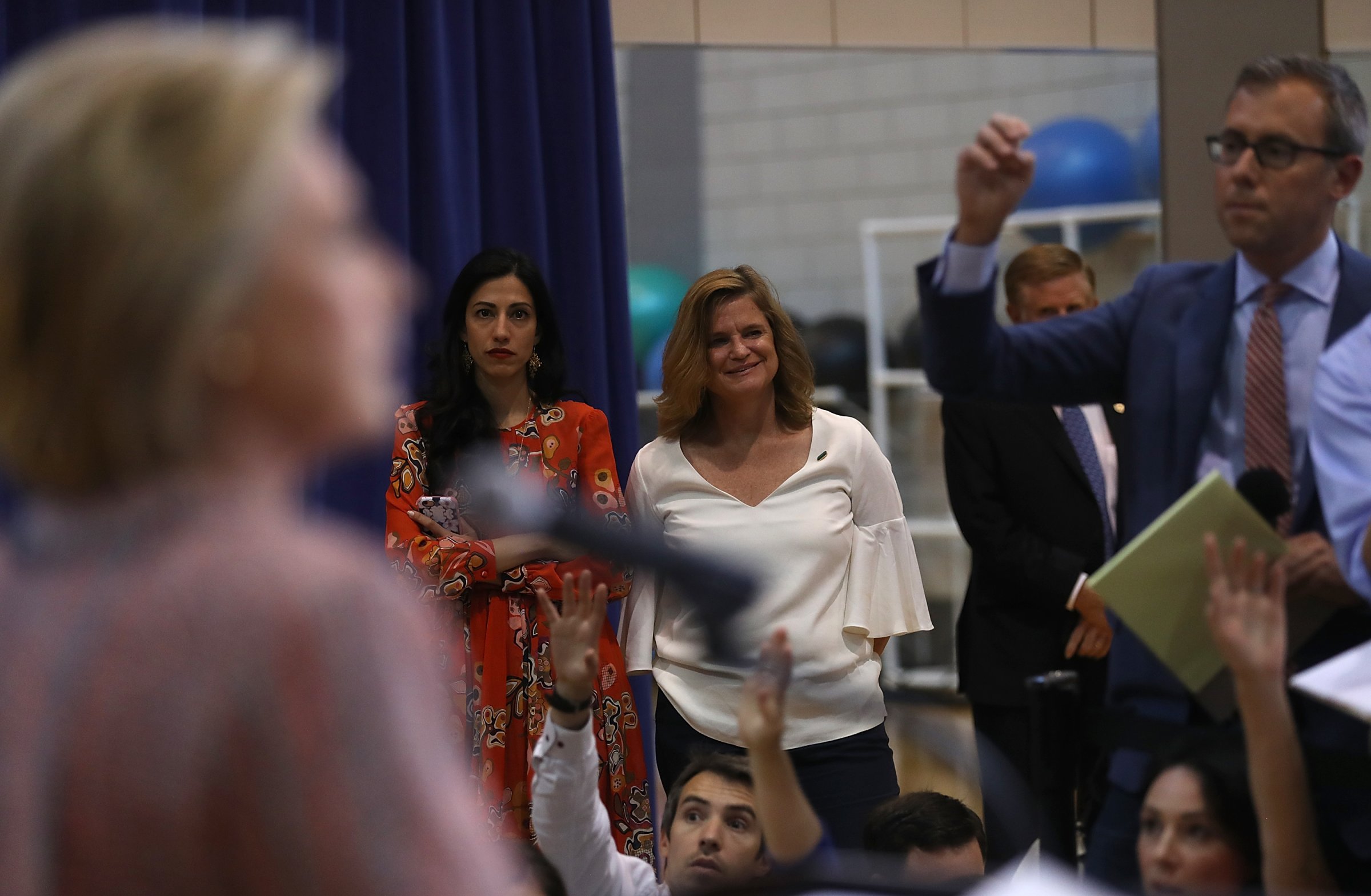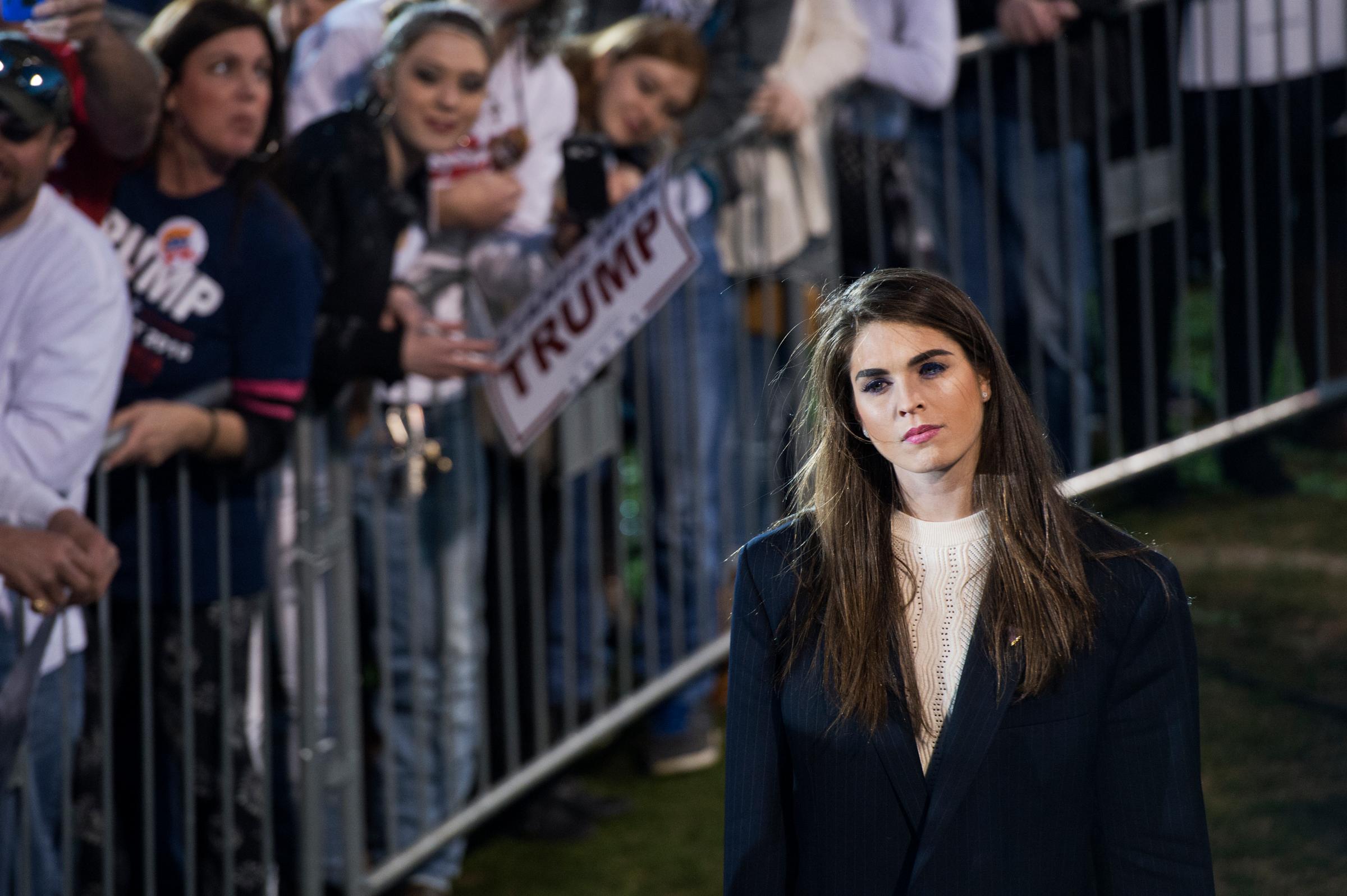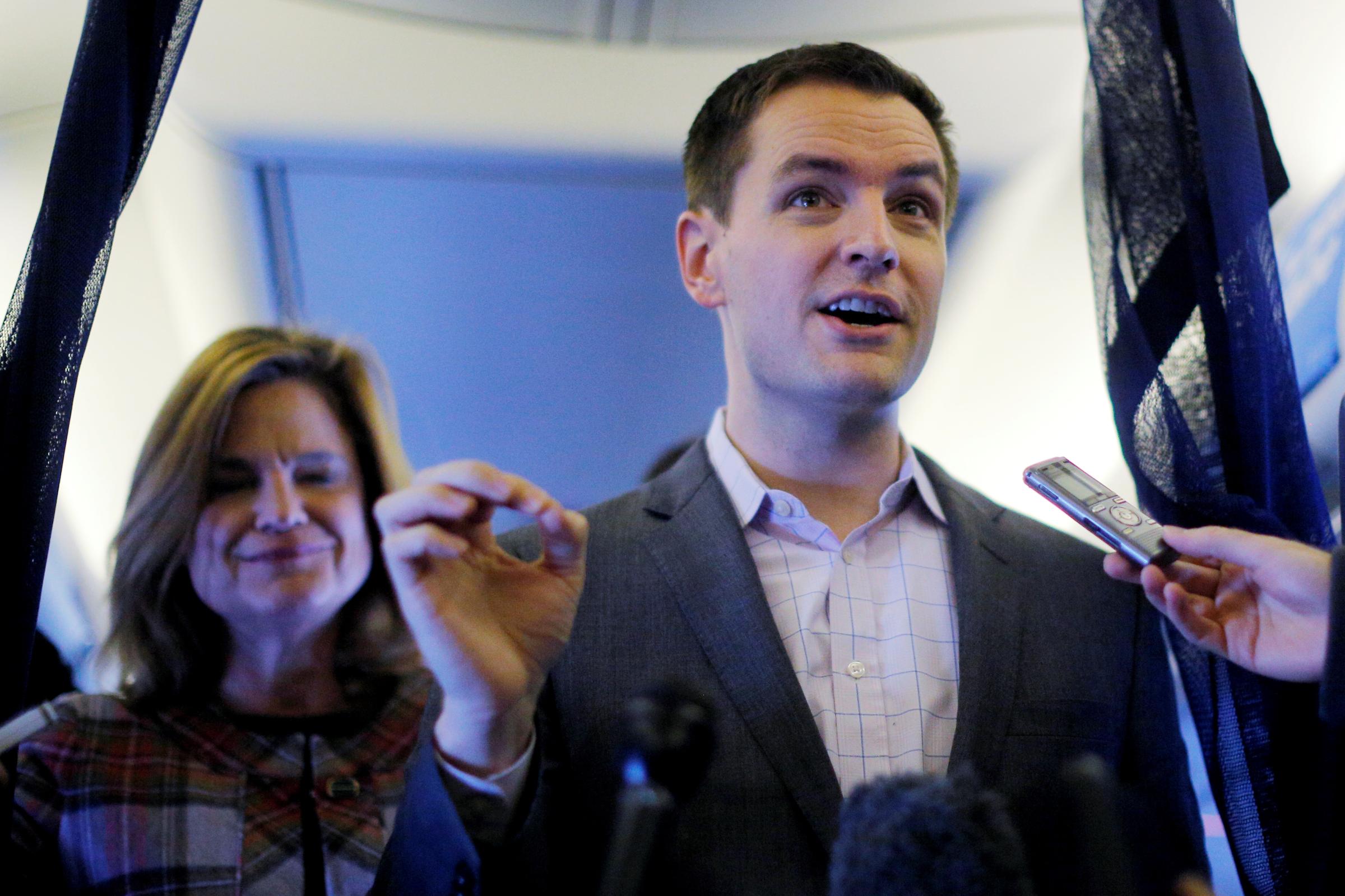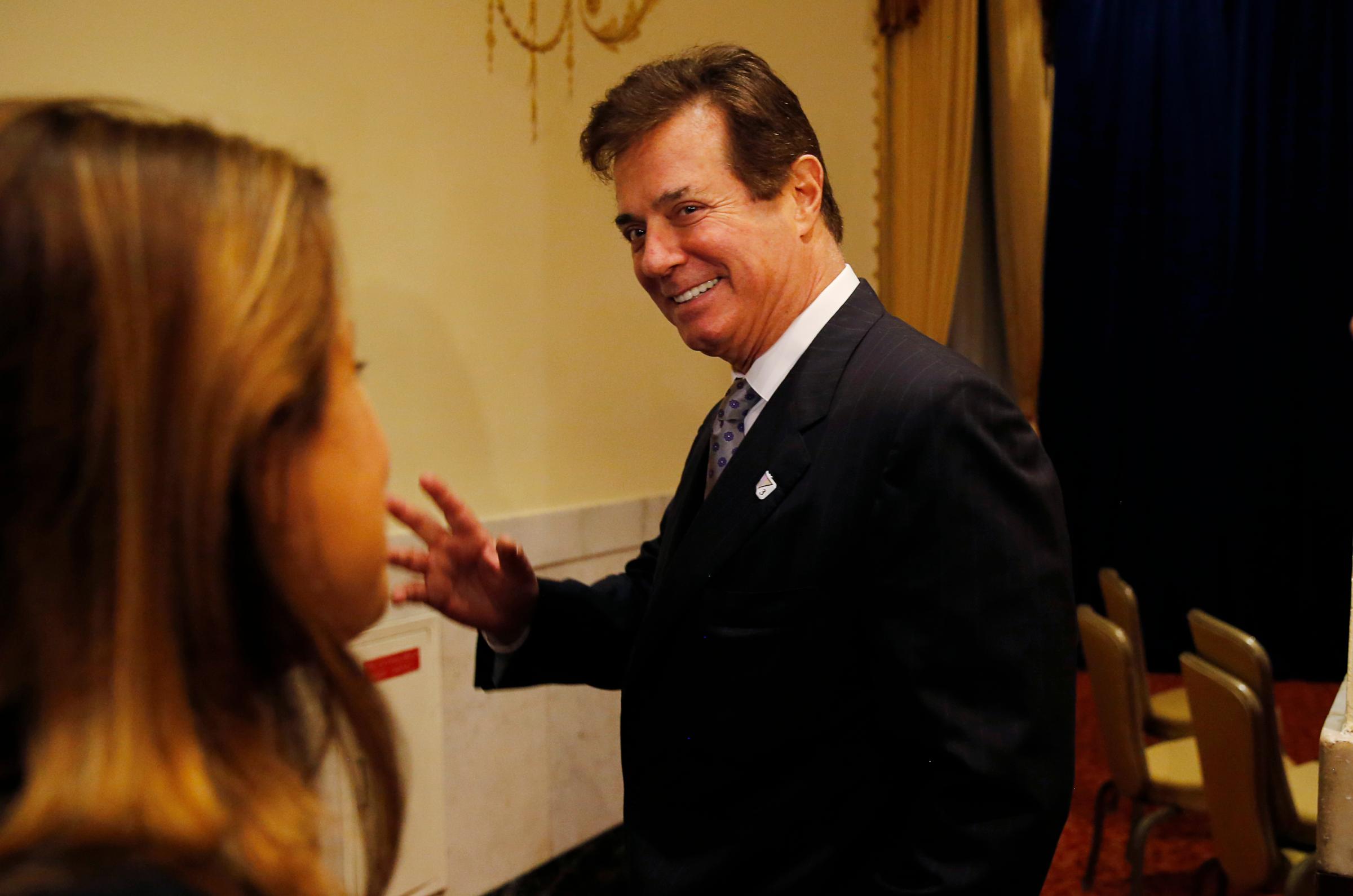
Correction appended, Dec. 2, 2016
Face to face with the foe, top aides from Hillary Clinton’s and Donald Trump’s campaigns clashed furiously, at time shouting over each other and tossing out catty asides about their opposite candidates. It was a fitting postlude to a caustic campaign.
Harvard’s Kennedy School hosted its quadrennial Campaign Managers Conference on Wednesday and Thursday, and the deeply divided camps offered an often unfiltered oral history of their campaigns. Trump’s victorious team wasn’t shy about reminding the vanquished of their defeat, and the loss was still raw for Clinton’s team. For some of the operatives, it was the first time meeting their rivals, and, in the case of the Clinton aides, it was their first public appearance since the Nov. 8 surprise.
“You’re making me remember such a wonderful moment in my life,” Clinton campaign chief Robby Mook said with more than a hint of woe, before dutifully taking his grilling from reporters and Harvard students about what went wrong. The diagnosis was inconclusive.
Over two days, the top aides from every major campaign but two — those of Ohio Governor John Kasich and former Senator Rick Santorum of Pennsylvania were no shows — reflected for the Kennedy School project on the first postelection history of a campaign that saw a billionaire, former reality-show star catapult past rivals with more traditional credentials. But there were flashes of frustration if not anger for winners and losers alike.
“Don’t act as if you have some kind of mandate,” Obama strategist Joel Benenson said of Clinton’s victory in the popular vote but not the all-important Electoral College.
“Hey, guys, we won,” fired back Trump campaign manager Kellyanne Conway.
“You guys are bitter,” Conway added after another exchange. “You’re all bitter.”
Her assessment wasn’t far off, and winning did little to instill a sense of humility.
“I would rather lose than win the way you guys did,” said Clinton communications director Jennifer Palmieri, attacking Trump’s courting of the “alt-right.” “I am more proud of Hillary Clinton’s alt-right speech than any other moment on the campaign.”

Some key takeaways:
Ted Cruz’s campaign advised Trump
Heading into the final weekend before New Hampshire voted, Cruz campaign maven Jeff Roe called his counterpart in Trump’s organization. The blustery New Yorker was on track to win the state that Cruz was largely ceding it. Cruz’s research showed voters were on the precipice of switching allegiances. If Trump could tone down some of his fireworks and campaign with a bit less acidity, he could sew up the state. Trump took the good advice, and he used a win in the state to start his string of wins. “Donald Trump changed his strategy on Thursday before the Tuesday election, to be positive,” said Corey Lewandowski, Trump’s manager at the time. “That was the recipe moving forward.”
Everyone hates the media …
The press was a target of every campaign team, who objected to everything from the time given to Donald Trump’s rallies to the rules used for debate qualifications. Trump’s campaign blasted the press for its coverage of their candidate. “The largest super PAC, called the media,” his digital director Brad Parscale sneered. “We had media bias that we had to spend money and energy to push and correct the message … We had to fight media bias and corporate bias.”
And Mook said the political forecasters signaled that a Clinton win was inevitable, driving down voting numbers. “When the New York Times or the other prognosticators say you have a 90% chance of winning, that suppresses [voters],” Mook said.
It was a good tactic. Surveys consistently say they do not trust the media, and Trump’s war on them boosted his appeal to the working-class voters who were looking for a candidate who would fight for them. “We actively picked fights with the Union Leader,” Lewandowski said of New Hampshire’s largest newspaper and called its publisher Joe McQuaid “a bad guy.”
But the Clinton campaign really hates the media
Palmieri criticized the press for providing airtime to Trump and ignoring their candidate. “He gets all the coverage and you guys only covered her when she was talking about him,” she said.
The Clinton team also piled on attacks for how the media covered Clinton’s use of a private email server. “It’s going to go down in history as the most grossly overrated, overcovered and most destructive story in all of presidential politics,” Palmieri said. “If I made one mistake it was legitimizing the way the press covered this story line.”
Mook echoed with a critique of the coverage of WikiLeaks emails — stolen private messages of Democratic National Committee staffers and Clinton campaign chairman John Podesta. “The media didn’t seem willing to put that in the proper context of the deep connections that Donald Trump had [with Russia],” he said.
Clinton aides repeatedly asserted that their boss — a former First Lady, Senator and Secretary of State — was treated as an incumbent President from the first day of the campaign. A frequent point of frustration was her paid speeches between her time at the State Department and her campaign. Palmieri said she read the speeches and initially favored just releasing them to get them out there. However, she came to realize it would never be enough. “They would be poured over, comma by comma,” Palmieri said.
CNN takes a lashing
CNN honcho Jeff Zucker came under sustained fire while participating in a media panel over Wednesday evening dinner of fish. The former NBC executive who green-lit The Apprentice faced questions about his network’s extensive and unedited coverage of Trump. He was jeered and heckled by the audience of campaign operatives and journalists, who questioned his decision to hire former Trump campaign manager Lewandowski and to allow Trump surrogates to continuously air falsehoods on his air. One reporter questioned Zucker’s decision to ask Trump spokeswoman Katrina Pierson — a “nut job” in her estimation — on shows even after she was shown to be factually challenged.

Twitter is king
Trump fundamentally changed how campaigns are fought, and Twitter was the favorite battlefield for Trump. “Donald Trump has just tweeted from his pajamas,” Lewandowski marveled. “Fox News would cover it live.” True. And it bedeviled his rivals who couldn’t match the machismo online. “It was like owning the New York Times without the overhead or the debt,” Trump aide Michael Glassner said. And when Trump stepped into controversy, he could fire off a late-night tweet and turn the page. “He has the ability to change the narrative with 140 characters,” Lewandowski said.
The result was that the traditional campaign infrastructure didn’t much matter. “People were really, really excited about President-elect Trump. They were not about Hillary Clinton,” said Mike DuHaime, New Jersey Governor Chris Christie’s campaign strategist. “The candidates have to be exciting for that to matter.”
Hillary is self-critical
Clinton, who has said she lacks the political talents of her husband, remained in a dark place even heading into Election Day. She was still bracing for a loss, even as polls showed her campaign heading toward a victory. “There was no one who was less surprised that she lost than Hillary Clinton,” said Palmieri, who added that Clinton insisted on expecting the worst. “She doesn’t expect everything to go her way.” Palmieri said.
Mook also said former President Bill Clinton remains deeply upset about the results.
Mook wanted his team in foxhole
Seeing polls showing Clinton heading toward a loss in her primary against Bernie Sanders in New Hampshire, Mook put out the call: everyone head north, whether they were tech engineers or political professionals. “The entire campaign was there. We literally emptied out our headquarters,” Mook said. Clinton lost by 22 percentage points. “We went through that experience together,” Mook said, saying he wanted his team unified in loss. In part, it is why no one blames Mook for the campaign loss.
The Clinton campaign also hates James Comey
The FBI director was a frequent target of the Clinton team, for providing what Mook called “the single greatest headwinds we had in this campaign.” That is, his pair of letters in the final 10 days of the campaign. Clinton’s team believes the first letter alienated some soft Clinton supporters, while the second energized Trump’s base. “Mr. Comey seems to care little about FBI precedents,” sniped Benenson, Clinton’s strategist and pollster.
Earlier in the campaign, Mook was on the phone with White House political director David Simas when Comey went to the television cameras for an unprecedented press conference to criticize Clinton’s use of private email. “I think we had better got off the phone and watch this,” Mook said to his counterpart. Neither knew just how far Comey would go.
Cruz wasn’t trying to get booed at the GOP convention
“I don’t think that he understood the conscience, the loaded word that that was,” said Jamie Johnson, of Cruz’s speech at the party’s confab in Cleveland. Cruz withheld his endorsement of Trump and encouraged Republicans to vote their conscience. “We understood that he could get booed … but the eventual outcome of what he was trying to accomplish he thought he could pull it off and he didn’t get it done,” he added.
Donald Trump does what he wants to do
Trump’s first campaign chief Lewandowski said the boss’ wealth was always to be embraced. He insisted on rolling into airports with his Trump-branded plane. He wanted expensive cars to ferry him around. Trump aides also recounted that their pleas for the President-elect to stay on message often fell on deaf ears.
After Trump attacked Senator John McCain’s military service, Lewandowski said he advised Trump to apologize. “Donald Trump does what Donald Trump always does, which is doubles down,” he said. “His instincts are so different.” Instead, Trump went to meet with reporters and repeat his criticism.
And for his attack on Judge Gonzalo Curiel, that was also premeditated and against the advice of staff.
“We had talked about it on the way to the venue and I made the strategic recommendation, as did others, not to do that, but Donald Trump does what Donald Trump wants to do,” Lewandowski said later.
They were just the latest examples of Trump ignoring tradition. For instance, he refused to release his tax returns—the first in decades to ignore that call. “No one cared,” Conway said glibly. Instead, Lewandowski said New York Times editor Dean Baquet, who told a separate Harvard audience that he would risk jail time to publish Trump’s tax returns. “He’s willing to commit a felony,” Lewandowski said. “It’s egregious. He should be in jail.”
The Muslim ban wasn’t a fluke and it helped Trump
Lewandowski explained that the campaign spent days working on the language for his Dec. 7 statement calling for the halt of Muslim immigration to the U.S. “The media wants to focus on what the statement said,” he said, before being interrupted by laughter. He continued to tout how the campaign spent multiple days vetting the policy. “We actually called a lot of people,” he said, adding, “Donald Trump spent a lot of time thinking about this before we wrote this statement.”
Rubio strategist Terry Sullivan noted that the controversy only helped Trump, even among those who didn’t agree with the constitutionally dubious plan, because it pitted Trump against elites. “It was this elite attitude, it wasn’t Middle America,” he said of the press coverage.

Polls were weaponized
Former Louisiana Governor Bobby Jindal planted himself in Iowa, betting he would go all-in in the state and notch an early win to prove he wasn’t an also-ran. “The path to victory was to throw everything into Iowa,” Timmy Teepell said. Then, the media bifurcated the field into the main debate and also-rans based on polling standing. “It became a national primary at that point,” he said. “You need to have the time to grow in Iowa, to meet people, to see your polls go up slowly. That didn’t happen.” Other campaigns also groused about the emphasis on polls, both for debates and for coverage. “Ultimately that strategy broke down when the media decided to have a different kind of debate criteria,” said Christian Ferry, who managed Senator Lindsey Graham’s campaign. And once relegated to the undercard debate, they were stuck there. “No candidate ever moved from the second tier to this first without the media changing the rules along the way.”
Team Trump can’t accept a win
Time and again, Trump’s aides crowed about their genius.
“I don’t think you give yourself enough credit for the negative campaign you ran,” said Mandy Grunwald, a longtime Clinton adviser and one of the savviest media strategists in the party. She then praised the Trump campaign’s use of the National Enquirer to publish outlandish claims that Clinton was mortally ill or bound for jail at any time. Trump’s team objected and stammered that they won. “Take the compliment, Kellyann,” Grunwald said.
“I would if it were one,” Conway said.
Grunwald merely shrugged. “We gave you the material to work with,” she said.
America almost got a fourth debate
The Clinton campaign mulled pitching one more meeting of Clinton and Trump, Palmieri said, because those sessions were the only way that made clear the differences between the two nominees. Conway said the Trump team would have accepted the invitation. After all, Trump improved with each debate.
“When we were at our best when we could be on stage with Donald Trump,’ Palmieri said. “We could never replicate that when they were in their separate silos.”
Correction: The original version of this story incorrectly attributed a quote about the 2016 election. It was Jennifer Palmieri who said, “There was no one who was less surprised that she lost than Hillary Clinton.”
More Must-Reads from TIME
- Donald Trump Is TIME's 2024 Person of the Year
- Why We Chose Trump as Person of the Year
- Is Intermittent Fasting Good or Bad for You?
- The 100 Must-Read Books of 2024
- The 20 Best Christmas TV Episodes
- Column: If Optimism Feels Ridiculous Now, Try Hope
- The Future of Climate Action Is Trade Policy
- Merle Bombardieri Is Helping People Make the Baby Decision
Write to Philip Elliott / Cambridge, Mass. at philip.elliott@time.com